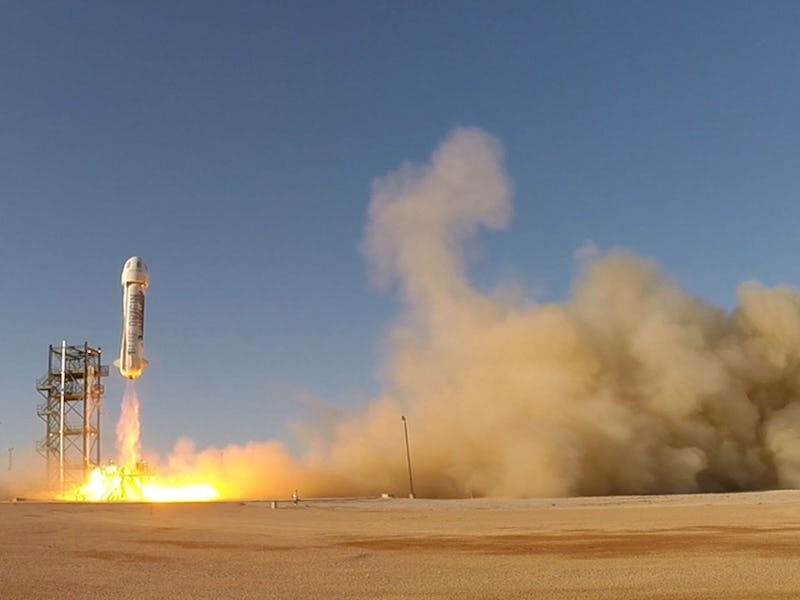Blue Origin is Still Going to the Moon, Even if Mars is Hip

The president of Blue Origin, Robert Meyerson, has indicated that his company retains its ambitions for sending cargo to the moon via the “Blue Moon” lander system, despite the Trump administration and NASA’s joint decision to prioritize Mars missions in the coming years.
Earlier this year, Blue Origin wrote a proposal to NASA to back its plans for the Blue Moon lunar lander. The company wants to send a string of missions to the moon with the “Blue Moon” system (not related to the beer), depositing gear, cargo, habitats, and other items necessary for future human settlement. The spacecraft would land by a crater at the moon’s south pole that has deposits of water and near-constant sun exposure, which it would use for solar energy. The project would also help set in motion the space tourism industry, as repeated launches and semi-permanent moon bases become a reality.
Amazon and Blue Origin CEO Jeff Bezos, has stated that the project can “only be done in partnership with NASA” and that he is “ready to invest my own money alongside NASA to make it happen.” He’s already investing about $1 billion of Amazon stock a year into Blue Origin, which seems an understandable limit.
When Bezos submitted the proposal to NASA on January 4, the prospects for partnership with NASA looked better. Popular speculation held that the Trump administration would prioritize missions to the moon after the Obama administration declined to do so.
Jeff Bezos, founder of Blue Origin.
But on March 21, President Donald Trump signed the NASA Transition Authorization Act of 2017, which instead instructed NASA to focus on Mars missions with the aim of eventually putting humans on the ground of the red planet. The bill didn’t mention missions to the surface of the moon — only to cis-lunar space, the area encompassed by the moon’s orbit.
It seems likely, then, that NASA has opted not to sponsor Blue Origin’s project for the time being. But at a space symposium on April 5, Meyerson reiterated that Blue Origin wants the NASA partnership, and described it as a mutually beneficial idea while referencing the agency’s plans for the Space Launch System (SLS).
“The more NASA flies SLS, the more they will need commercial logistics delivery services,” he said. “Blue Origin and Blue Moon compliment SLS and Orion, enabling NASA’s return to the moon, and this time to stay.”
The Moon will be seeing some activity in the coming years unrelated to Blue Origin’s ambitions. SpaceX hopes to send two private citizens around the moon next year, and NASA will still venture to cis-lunar space on a possibly crewed mission. We’ll have to see whether the Blue Moon project manages to join that list.